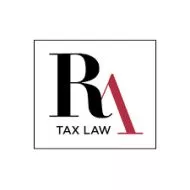The GAAR, or General Anti-Avoidance Rule, is a rule meant to prevent abusive tax avoidance. It functions by denying Canadian taxpayers the benefits of engaging in abusive tax avoidance, while trying to balance a Taxpayer's right to plan their tax affairs how they see fit. As it stands, the GAAR currently applies if the following requirements are met in the course of a transaction or series of transactions:
- The transaction results in a tax benefit;
- The transaction is an avoidance transaction; and
- The transaction results in a misuse or abuse of the provisions of the Tax Act.
While a transaction may technically fit within the requirement of the Tax Act, the GAAR is there to catch those transactions that would go so far as to undermine the Acts purposes.
Changes to the GAAR
In Budget 2023, several proposals were put forward that would make changes to the GAAR. Following a consultation period, further proposals were announced that would amend the GAAR. The proposed changes are summarised below.
Preamble
The changes to the preamble are meant to help alleviate the existing confusion in interpretation. Specifically, the changes will:
- Specify the intention of the GAAR is to deny a tax benefit that results from a misuse or abuse of the provisions of the Act. It is not meant to prevent taxpayers from being able to organize their affairs in a way that would allow them to get legitimate tax benefits; and
- Walk the line between providing taxpayers with certainty as they organize their affairs and supporting the government's obligations to promote tax fairness.
Avoidance Transaction Purpose Test
The proposed changes would also lower the threshold for what would be considered an avoidance transaction. After the new proposals go into effect, a transaction could be considered an avoidance transaction if one could reasonably determine that “one of the main purposes” of the transaction is to obtain a tax benefit. The previous wording was “primarily”.
This change would broaden the scope of the GAAR, as transactions that were previously not caught by it, such as those that resulted in a benefit but were undertaken primarily for bona fide purposes, would now be subject to its provisions.
Economic Substance Rule
Another change would add economic substance to the list of considerations when the courts are determining whether a transaction was an avoidance transaction. A transaction lacking economic substance would be presumed to be abusive tax avoidance. Just some of the factors that might determine economic substance include:
- There are no changes to the risk of loss or profit for the taxpayer.
- The value of the tax benefit would be expected to be greater than any financial or non-tax benefit; and
- It would be reasonable to draw the conclusion that the entire, or nearly the entire, purpose of the transaction was to obtain the tax benefit.
Penalty for GAAR reassessments/extended reassessment period
As an additional deterrent, taxpayers who are found to have engaged in abusive tax avoidance could be subject to a new penalty amounting to 25% of the tax benefit resulting from the avoidance transaction. There are some exceptions, however:
- Transactions that had previously been disclosed to the CRA under the mandatory disclosure rules on form RC312;
- Transactions not subject to the mandatory disclosure rule but were nevertheless disclosed to the CRA on form RC312; and
- Transactions for which it would be reasonable to conclude, based on case law and CRA guidance applying to similar transactions, that the GAAR would not apply.
The threshold to be considered for the third exception has been noted in the explanatory notes accompanying the proposed changes as being quite high.
The proposed changes would also extend the reassessment period for GAAR assessments by three years, subject to the exceptions for transactions disclosed under the optional and mandatory reportable transaction rules.
Conclusion
The proposed changes, as they stand will come into force and effect on transactions that occur on or after the 1st of January 2024. The one exception would be the changes made to the preamble, which would come into force when the proposed changes receive Royal Assent.
The content of this article is intended to provide a general guide to the subject matter. Specialist advice should be sought about your specific circumstances.


